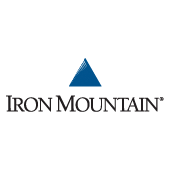Frustrated by surge in employee data request, IT teams struggle to cope with big data and information security
Measures designed to protect and manage growing volumes of information have led to a surge in time-consuming data retrieval requests that place a further burden on over-stretched IT teams, a new European study by storage and information management company Iron Mountain has discovered.
Iron Mountain conducted a series of in-depth interviews with senior IT professionals in France, Germany, the Netherlands, Spain and the UK[i]. The conversations reveal that IT professionals are experiencing year-on-year increases of up to 60 per cent in requests for data as employees look to make the most of customer insight or access centrally stored data.
Respondents cite the rapid growth in data volume as the top driver of retrieval requests, as information becomes too great to store on individual PCs. The second biggest contributor to rising employee requests for data is the organisation’s need to restrict access in order to bolster data protection and security, with many employees not permitted to keep copies of business critical information. This means that employees need to formally request access to centrally stored information, which is then provided on a limited and read-only basis.
Next on the list is the impact of company growth, resulting in more employees generating information and requiring access. This is followed by the inevitable impact of human error such as accidental deletion, forgetting to save documents, and the loss or theft of personal mobile devices or shared information.
The data retrieval requests were found to be highest in the manufacturing, services and healthcare sectors.
A UK legal software firm that employs more than 10,000 people said it receives a non-stop stream of requests for documents to be used for citations and precedents; while a healthcare firm with more than 250 employees says that its commitment to patient confidentiality means that employees are given read-only access to documents and that its ability to view them expires after a pre-determined time limit.
A manufacturing firm in France with just under 500 employees says its vast repository of product, process, research and development data is in constant use and demand by employees. Storing all this information in a confidential database on site has become a huge challenge.
A hospitality firm in the Netherlands with 200 employees finds that information retrieval requests surge at peak booking times and suspects this is because employees get so busy that they don’t want to spend any time looking for a document they can’t instantly locate.
Retrieval requests can be triggered by accidental data loss. A Spanish software firm with just under 50 employees explains that information often gets lost in transfer to and from off-site development, sales and support teams.
Not all retrieval requests are internal. A telecommunications firm in Germany with several thousand employees says its data retrieval requests mainly come from law enforcement agencies looking for user call details to support criminal investigations.
“Data protection and information value are important areas worth taking seriously, but it is important to understand that they will also impact data storage and retrieval processes,” said Christian Toon, Head of Information Risk for Europe at Iron Mountain. “We believe that tiered information storage is the answer: defining what is most used, most critical and most confidential, as well as what is essentially dormant, and then structuring your storage, access and back-up process accordingly. Keep high-value, highly active documents readily available, but relegate more archival and other types of information to more economical forms of storage. Our conversations reveal that this message is starting to get through, with respondents introducing centrally managed self-service data stores, supported by on-site and off-site discs, tape and cloud back up. This helps to ensure employees have access to the data they need, while minimising the impact on IT resources and reducing information risk.”
About Iron Mountain:
 Iron Mountain Incorporated (NYSE: IRM) is a leading provider of storage and information management solutions. The company’s real estate network of 67 million square feet across more than 1,000 facilities in 36 countries allows it to serve customers around the world. And its solutions for records management, data backup and recovery, document management and secure shredding help organisations to lower storage costs, comply with regulations, recover from disaster, and better use their information for business advantage. Founded in 1951, Iron Mountain stores and protects billions of information assets, including business documents, backup tapes, electronic files and medical data. Visit www.ironmountain.co.uk for more information.
Iron Mountain Incorporated (NYSE: IRM) is a leading provider of storage and information management solutions. The company’s real estate network of 67 million square feet across more than 1,000 facilities in 36 countries allows it to serve customers around the world. And its solutions for records management, data backup and recovery, document management and secure shredding help organisations to lower storage costs, comply with regulations, recover from disaster, and better use their information for business advantage. Founded in 1951, Iron Mountain stores and protects billions of information assets, including business documents, backup tapes, electronic files and medical data. Visit www.ironmountain.co.uk for more information.
[i] Opinion Matters for Iron Mountain, April 2014. Ten interviews were conducted with IT professionals in each of the UK, France, Germany, Spain and The Netherlands, representing the manufacturing, healthcare, telecommunications, financial services, professional services, hospitality, media and broadcasting, advertising, retail and software sectors, with between 50 and 10,000 employees.
The opinions expressed in this post belongs to the individual contributors and do not necessarily reflect the views of Information Security Buzz.



